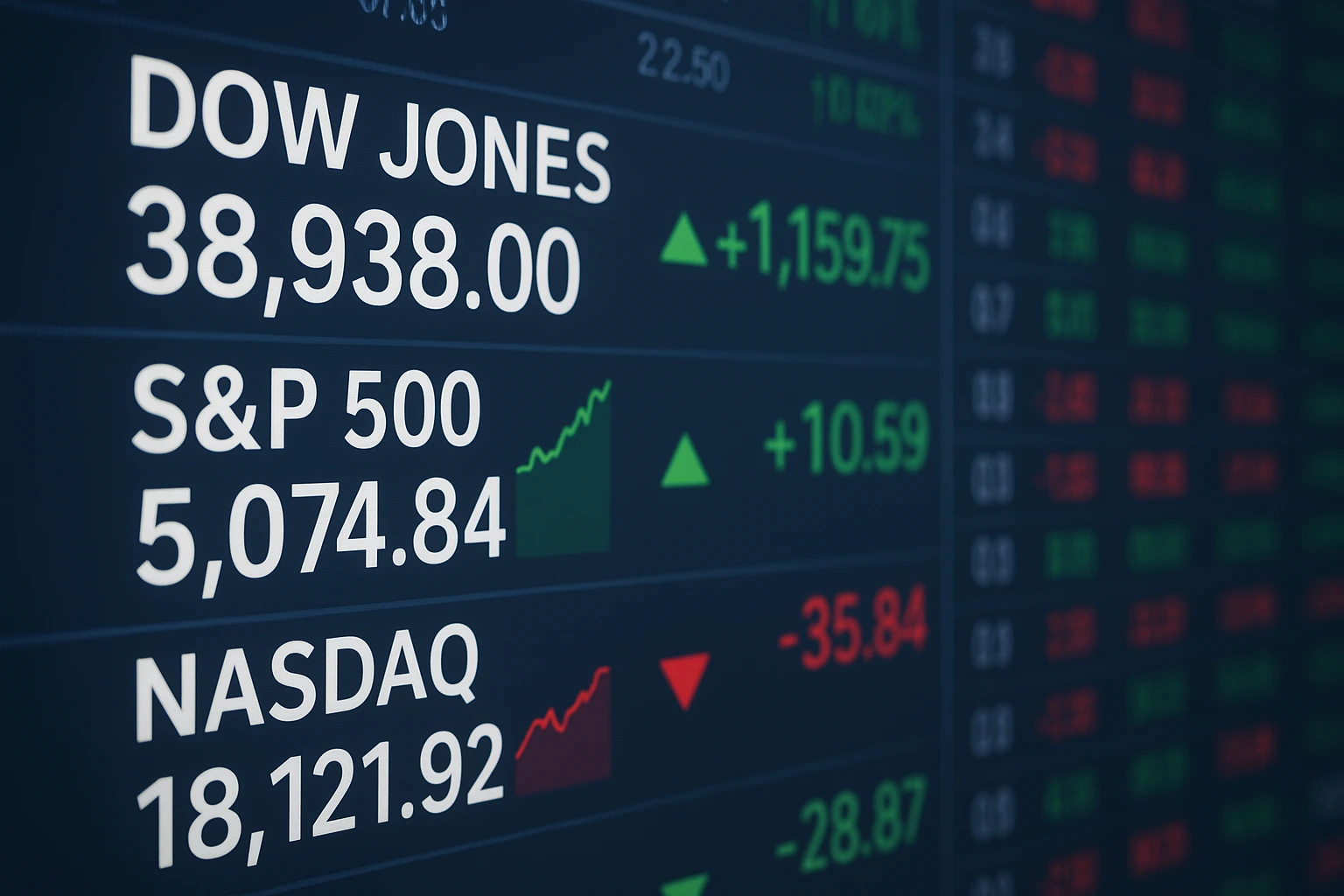NEW YORK — The Dow Jones Industrial Average surged more than 500 points Tuesday to close at a record high, buoyed by growing optimism that Washington is nearing an end to the record breaking government shutdown.
But the broader US market showed mixed results, as a sell off in technology shares led by Nvidia dragged on the Nasdaq Composite.
The Dow rose about 1.2%, or more than 550 points, marking its highest ever close. The S&P 500 inched up 0.2%, while the Nasdaq slipped 0.2%.
Investors appeared divided between enthusiasm for a potential reopening of federal operations and renewed anxiety over the durability of the artificial intelligence (AI) boom that has fueled much of the market’s recent momentum.
The 41 day government shutdown, the longest in US history, has rattled markets and delayed key economic data releases. The Senate passed a bipartisan funding bill late Monday to reopen federal agencies, advancing the measure to the House for a potential vote as early as Wednesday.
“The sense of relief on Wall Street is palpable,” said Amanda Leighton, a senior economist at Capital Edge Research. “Even a short term deal would signal that political paralysis is easing, at least temporarily, and that’s enough to rekindle confidence in the broader economy.”
While the Dow benefited from renewed investor appetite for industrial and financial stocks, the tech heavy Nasdaq stumbled, reflecting investor caution toward high growth companies whose valuations have soared on AI enthusiasm.
Nvidia shares dropped 2.5% after reports that Japan’s SoftBank Group had sold its entire stake in the chipmaker to redirect funds toward its own AI ventures.
The move rattled investors who have viewed Nvidia as a bellwether for the AI revolution and broader tech sector strength. “SoftBank’s exit from Nvidia is both strategic and symbolic,” said Michael Lutz, a technology analyst at Redwood Securities.
“It suggests that even early AI backers are reassessing how much longer this wave of optimism can sustain before valuations demand a reality check.”
CoreWeave, an Nvidia backed AI infrastructure provider, added to the sector’s woes after trimming its annual revenue outlook and citing delays from a key data center partner. Its shares plunged roughly 15%.
“These are early signals that the AI trade may be entering a consolidation phase,” Lutz added. “The underlying technology remains transformative, but investor expectations may need to cool off.”
The latest data from ADP showed that US companies shed an average of 11,250 jobs per week during October, indicating a gradual softening in labor demand even before the government shutdown began to bite.
Analysts said that figure reinforces the perception of a cooling job market that could influence the Federal Reserve’s rate trajectory once official economic data resumes.
“Private data is filling the gap while federal reporting is delayed,” said Leighton. “Once the government reopens, we’ll get a clearer picture of how much damage has been done to growth momentum and employment trends.”
Despite the shutdown, the Dow has remained resilient compared with other indexes, buoyed by strong performances from industrial heavyweights such as Caterpillar, Honeywell, and JPMorgan Chase.
The blue chip index, less reliant on technology stocks, has benefited from investor rotation into more stable, dividend paying companies.
In contrast, the Nasdaq, which has surged over 35% year to date, has been vulnerable to profit taking and shifting sentiment around the AI narrative.
In New York’s Financial District, traders expressed cautious optimism about the market’s trajectory. “There’s definitely relief in the air,” said Sarah Compton, a floor trader at Manhattan Exchange Partners.
“But no one wants to get ahead of themselves until we see the House follow through on the Senate’s action. If the shutdown ends this week, it’ll give everyone some breathing room.”
Meanwhile, retail investors voiced frustration at the political stalemate’s impact on their portfolios.
“Every day this shutdown drags on, it chips away at confidence,” said Leo Martinez, a small investor in Austin, Texas. “It’s good to see the Dow hitting records again, but the uncertainty is exhausting.” Market strategists warned that even if the shutdown ends this week, its aftershocks could linger for months.
Economic data releases delayed by the closure, including key inflation and employment reports, may take time to resume, potentially leaving the Federal Reserve without critical inputs ahead of its December meeting.
“The shutdown’s economic cost is not just in lost output but in lost visibility,” said Diane Cho, chief market strategist at Altera Investments. “The longer policymakers and investors fly blind, the harder it becomes to set clear expectations for rates or growth.”
On the geopolitical front, concerns resurfaced after The Wall Street Journal reported that China plans to restrict rare earth mineral exports to the US military while maintaining supplies to other American buyers.
The move reignited debate over the sustainability of the fragile US China trade truce, particularly for industries dependent on critical minerals for defense and technology production.
The record breaking climb of the Dow underscores Wall Street’s capacity for resilience even amid political and economic turbulence.
Yet the day’s mixed performance reveals a market grappling with competing narratives optimism over an impending government reopening, and skepticism over the sustainability of the tech fueled AI rally.
As investors await clarity from Washington and new economic data, the balance between risk and reward remains uncertain.
Whether the Dow’s record marks the beginning of a broader rally or a temporary reprieve may depend less on Wall Street and more on the decisions unfolding in the halls of Congress.
